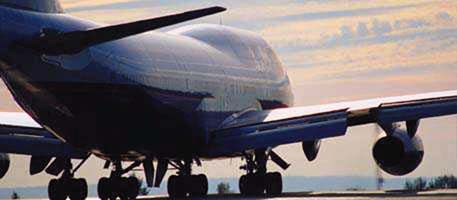 Home again
Home againReturnees under attack
By Fanny Lee
They were emigrants several years ago. Recently, they re- turned home. Now they face not only the change of identities, but also many problems and accusations.
According to a recent survey conducted by the Press Office of the government’s Security and Constitution Affairs Branch, of the 527,200 emigrants between 1984 and 1994, at least 12 percent returned to Hong Kong recently.
Gloomy economic conditions in foreign countries like the United States, Canada and Australia, where 90 percent of the emigrants went, is one fact that triggered the return tide.
Miss Lee Wai Yee, 30, lived in Canada for 11 years. She thinks that there are more chances in Hong Kong and the working conditions here are better.
She said, “People in Hong Kong are more energetic and willing to work.” However, facing the future, Miss Lee is still doubtful, and she decided she will leave again if Hong Kong experiences any drastic changes after 1997.
According to research by the Hong Kong Institute of Personnel Management, 80 percent of the returnees found it easy to get jobs in Hong Kong. Most of them are aged 30 to 39, and they are professionals with academic qualifications.
However, some returnees find it difficult to adapt to the new environment. Mr. Kevin Chan, an advertiser with a masters degree in marketing, was one of them. He left Hong Kong 16 years ago and came back in 1994.
He said, “It is so congested here. People do not have much private room.”
This view is shared by Miss Ann Chan, a bachelor of fine arts, who left Hong Kong when she was very young.
She said, “It is very noisy here, and the traffic is always jammed up.”
Nevertheless, returning Hongkongers are very adept at coping with the local living conditions.
Said Dr. Ronald Skeldon, professor in the Department of Geography and Geology at the University of Hong Kong: “They are capable of dealing with any problem they face in Hong Kong.”
“We are young and flexible to cope with problems,” agreed Miss Chan. However, the returnees are blamed for competing with local workers for jobs, especially with university graduates.
Prof. Skeldon disagreed: “While there is a labour deficit in the city, the returnees who are professionals possess skills that contribute to the society.”
Miss Lee pointed out that it was unfair to put blame on the returnees.
“It is after taking many factors into consideration that a boss makes the decision of who to employ,” said she.
However, she added that language skills that returnees acquired in foreign countries were not an advantage.
“I believe university graduates are also good at languages,” she said. “It is a fair competition.”
Some people claim that the returnees are worsening the present housing and traffic problems as well. But Prof. Skeldon disagrees.
“The high property prices have little effect on the returnees, who mostly live in luxury housing,” said Prof. Skeldon. “Even though their demand for housing is high, there is still a surplus of luxury housing.
Besides, Prof. Skeldon said , returnees only represented “a small proportion of the population”.
He said, “The actual impact brought by them was beyond prediction.”

November 1996
Return to contents
[Editorial]
[Answer Man]
[The Frontier]
[Investment]
[Sex education]
[Japanese]
[Home again]
[Sushi]
[Protest]
[Rowing]
[Relationship]
[Internship]
[Cheung Wai-leung]
[Pubs]
[Magazine biz]
[DVD]
[Breastfeeding]
[Birthmark]
[Amy Chan]
